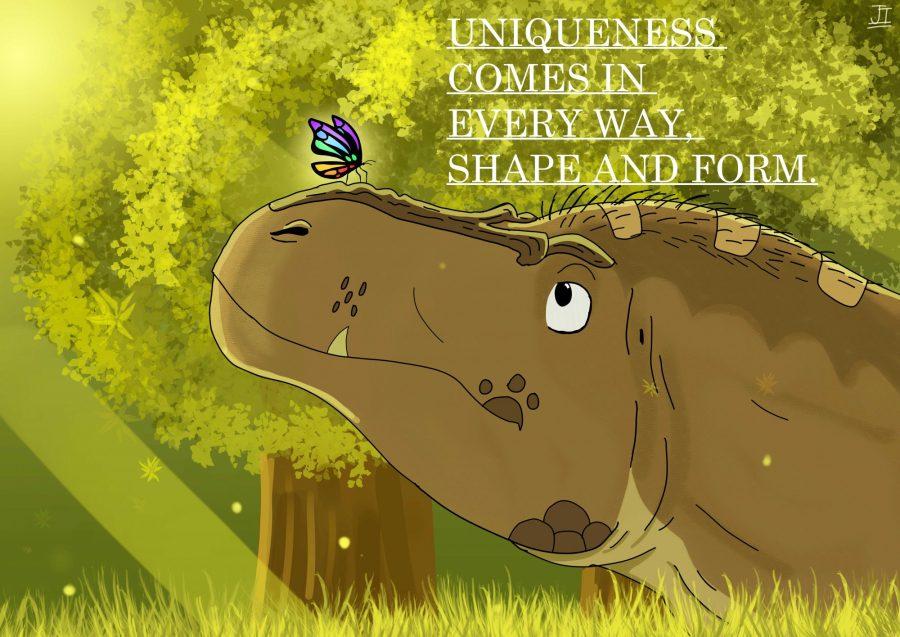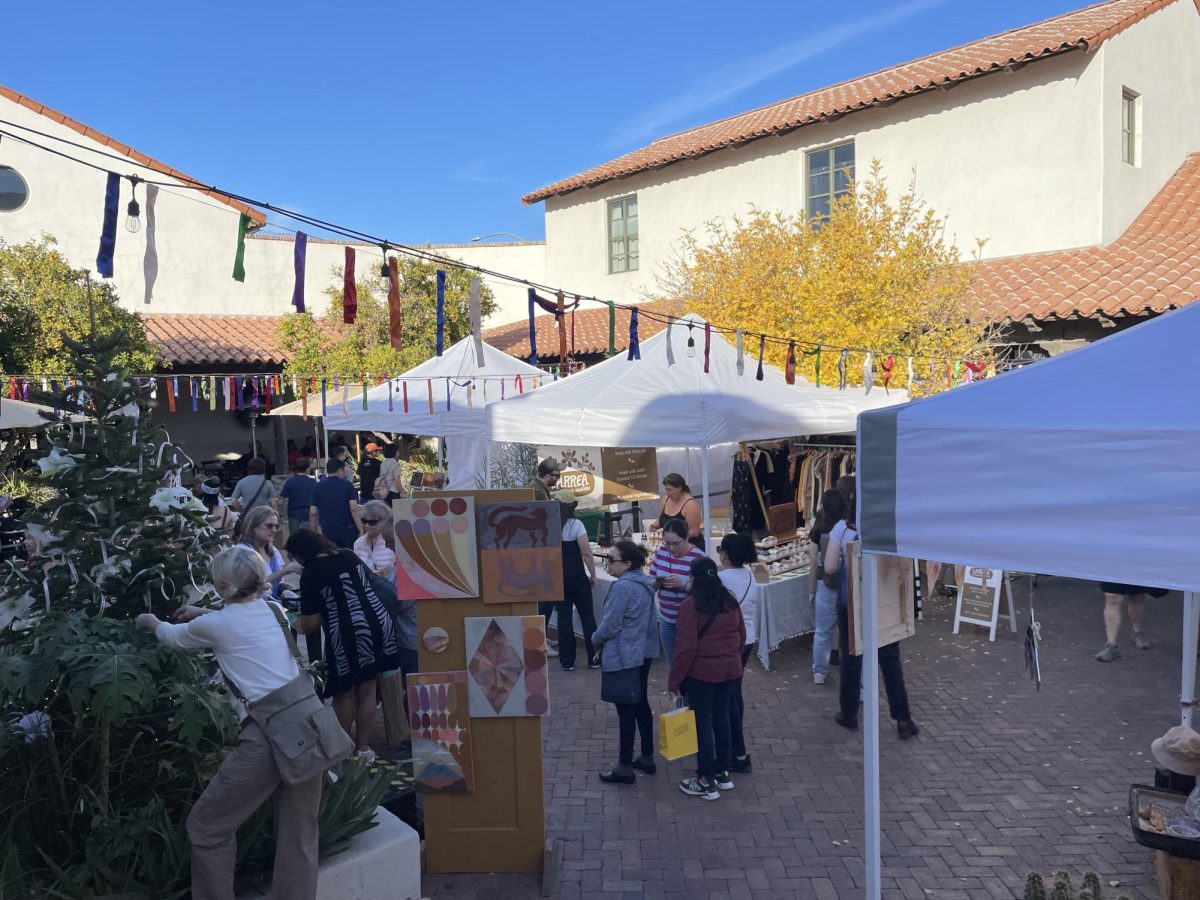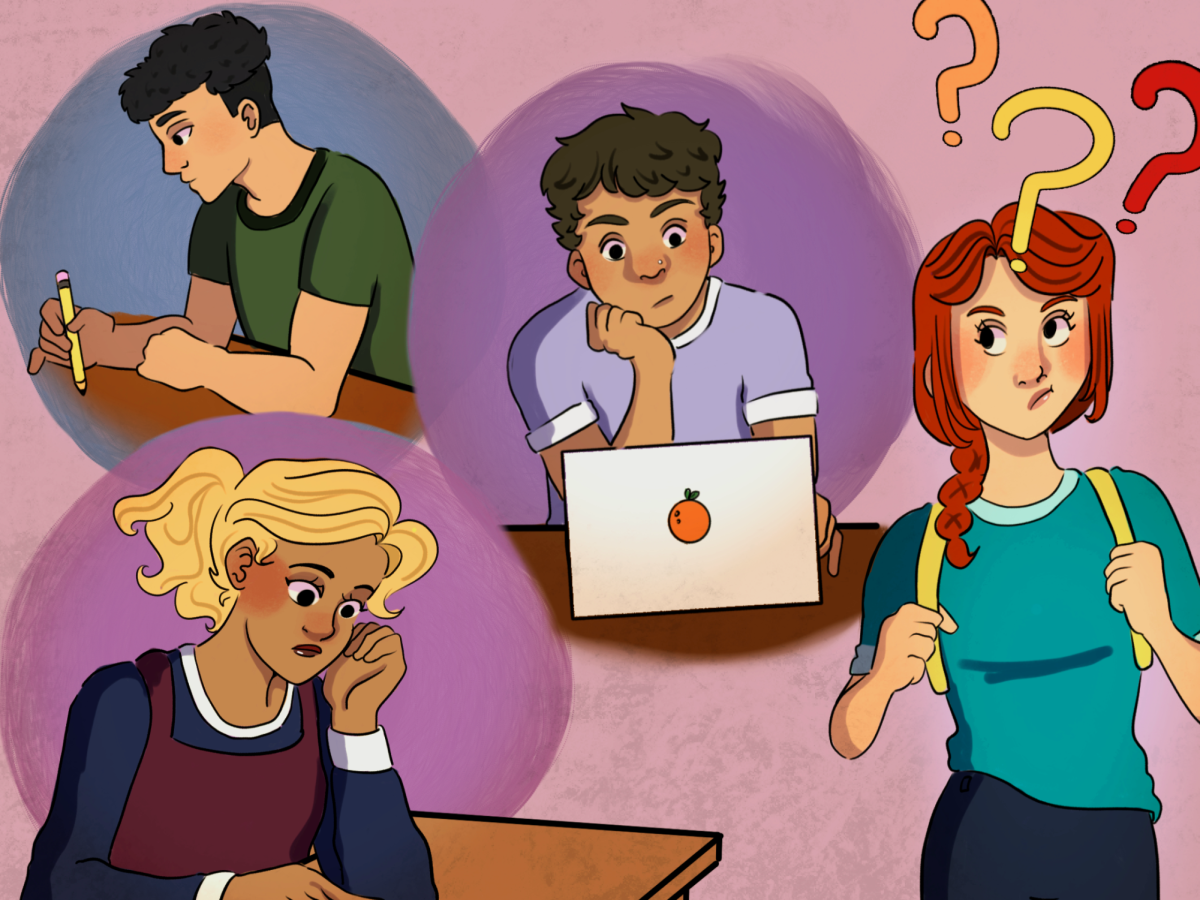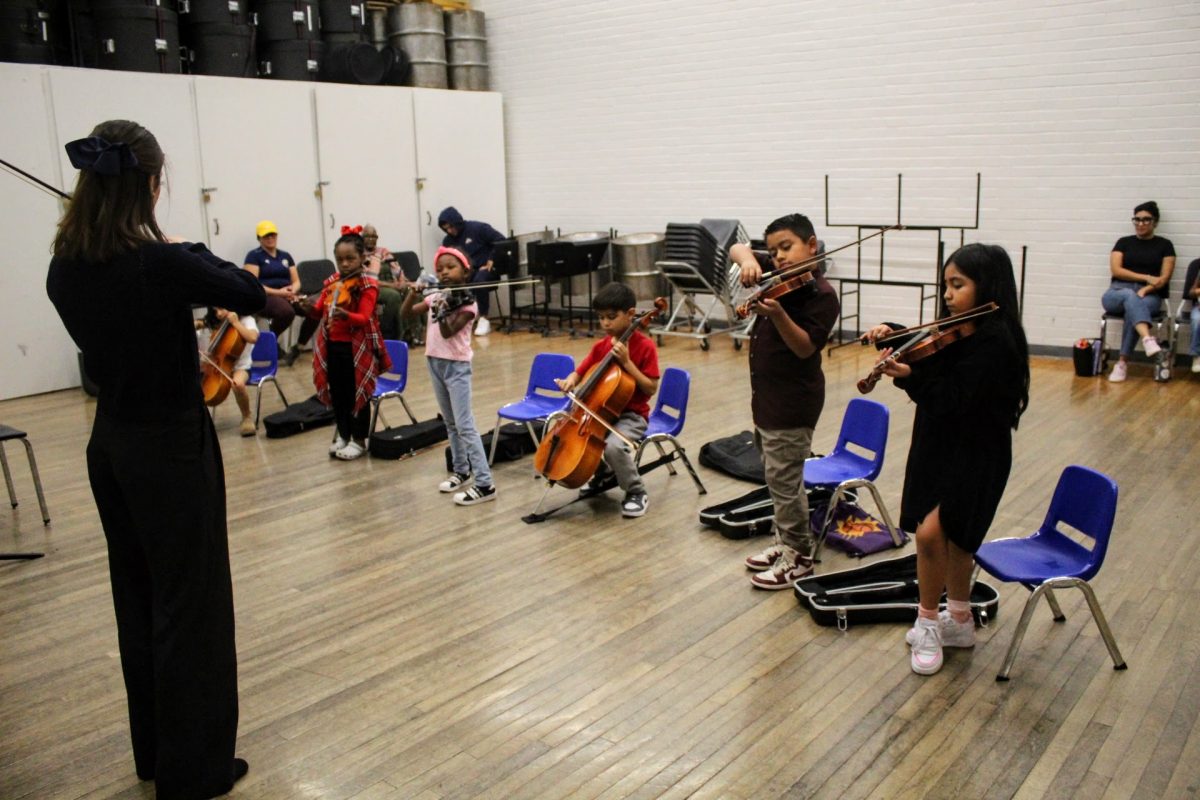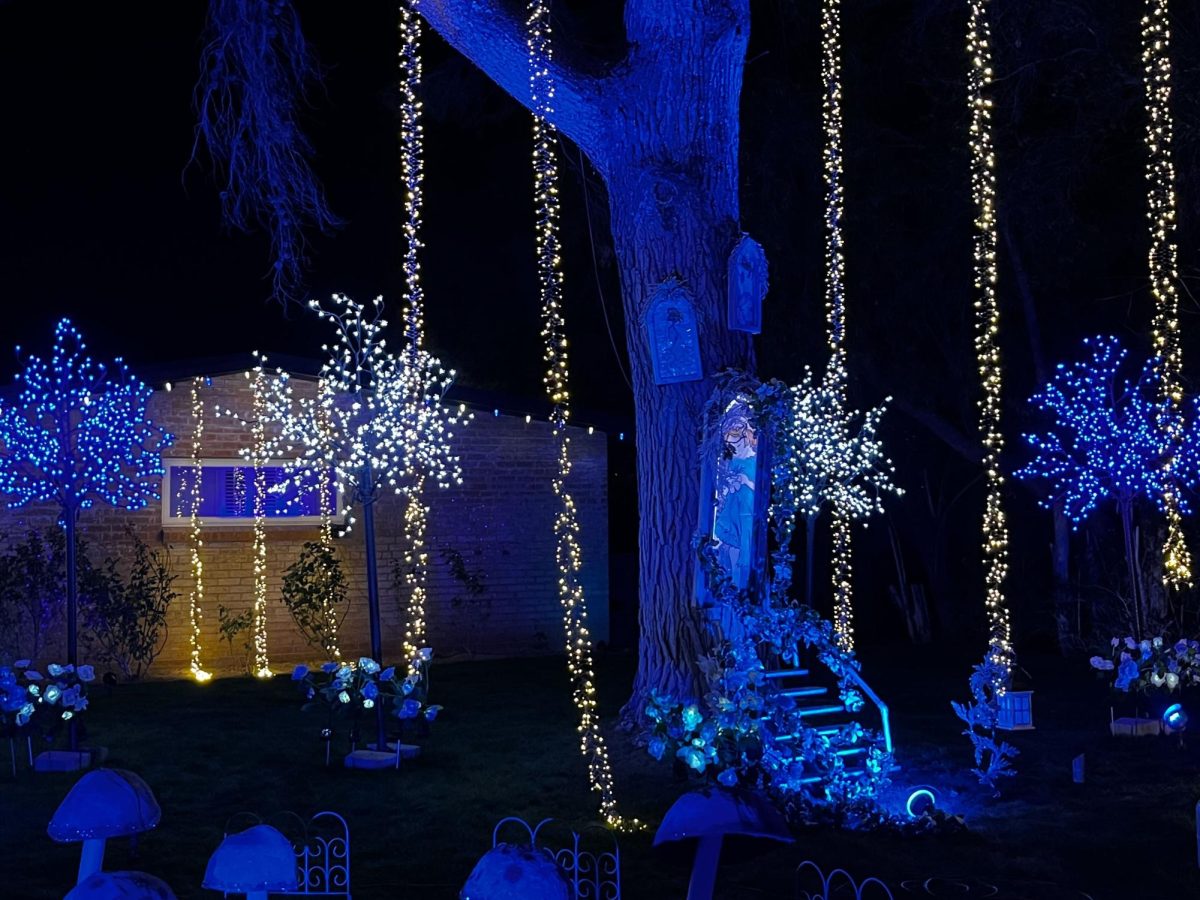The University of Arizona’s College of Education works with Pima County public schools on a project to provide an inclusive college experience for young adults with intellectual and developmental disabilities.
Project Focus provides these students with opportunities to participate in collegiate-level academic courses, community-based work internships and social campus life events.
According to its website, the project’s goal is for students to graduate as “independent, self-determined, confident, employable citizens rooted in the knowledge and skills gained during their inclusive university experiences.”
Benjamin Lemon, a pre-law student and peer mentor in Project Focus, explained their goals.
“We assist students to go from a high school, which is usually an isolated or segregated special education setting, into a real-world work environment,” Lemon said. “We are getting them ready and integrated into a fast-paced lifestyle that they will be seeing when they get a job.”
Peer mentors form the foundation for student success in the program. Lemon said being a successful peer mentor means understanding exactly how much “mentoring” is needed.
“Our goal is to be as hands-off as possible,” Lemon said. “You want to provide as little support as necessary, but as much support as is needed.”
Lemon explained that the goal is for students to learn how much they can do on their own.
“You want to let students figure things out for themselves. Learn that there are consequences to their actions,” Lemon said. “Our role as a mentor is to be there, assess where they’re at, and how much support they need with any task, and then to be as minimally invasive as possible. We want them to do their thing.”
When it comes to the day-to-day life of a peer mentor, Maggie Maxwell, a rehabilitation studies major, said she and her fellow mentors serve as additional support and as advocates for the students.
“We can do anything from going into classes with the students and assisting them and taking notes and helping with assignments to just hanging out and eating lunch,” Maxwell said.
Through moments like these, relationships are built and friendships are formed.
“It’s not so much like being a support now,” Maxwell said. “They’re just my friends and it’s like hanging out with my friends.”
RELATED: Muralist hopes to bring art to University of Arizona community
Being an advocate has meant a lot for Anna O’Neill, who is triple majoring in speech pathology, psychology and Spanish.
“I never realized how difficult it can be to be a student with a disability at a place like a college campus,” O’Neill said. “I’ve had so many experiences where I’m like, wow, I would have never realized that was the reality.”
One of those experiences was at the Student Union Memorial Center.
“I was going to the Union and getting food with a student. They were going to pay, and the workers were looking at me instead of the student because they have a disability,” O’Neill said. “This is something that I’d read about in class, but I’ve never really seen.”
Other programs like Project Focus are hard to come by. There are not many others in the United States like it.
“I remember hearing about Project Focus in high school and feeling really inspired by it,” O’Neill said. “My classmates and teachers at my Phoenix high school all wished we had a program similar to Project Focus at ASU.”
As peer mentors, Lemon, Maxwell and O’Neill have all experienced very impactful student success stories.
“A student enrolled in the program, JP, was an intern with the Pride of Arizona [marching band] last semester. He got to practice with them and went to every single pep rally and performed with them,” Lemon said. “Getting to see him in that environment, just a huge smile on his face, clearly having the time of his life just put a smile on my face as well.”
JP’s success story also left an impact on O’Neill.
“I just felt so proud of him,” O’Neill said. “That is something that not a lot of people get the opportunity to do and not a lot of people are brave enough to do.”
An impactful moment for Maxwell came from a personal experience shared with a student, Marlene.
“Marlene is in her first year here at Project Focus and seeing her progression from last semester to this semester is just amazing,” Maxwell said. “She has a communication disorder, so it’s hard for her to enunciate words and to speak up about things. After hanging out with her for almost an entire year, she really opened up to me. I have her on Snapchat, and she’ll send me minute-long videos when she’s at home just chatting about all these different things. Whereas, last semester, it was like pulling teeth to get like a couple of words out of her. Seeing her progression has just been absolutely amazing.”
The peer mentors have gained a lot from their time in Project Focus, too.
“I have learned so much about treating everyone the same,” O’Neill said.
They said they have learned what it means to truly be an advocate.
“I’ve become a huge advocate for individuals with disabilities because of Project Focus,” Lemon said. “I would have liked to have thought that I was somebody that in the right scenario would help an individual with disabilities or stand up for them and their rights. But being in the program has given me such a better idea of how to do that and how to be a lifelong advocate in the world.”
And now they have more friendships and connections as well.
“I’ve made so many friends,” Maxwell said. “Also, the relationships that I’ve made with the students as well as the teachers – it’s such a loving and supportive community that I’m just I’m so blessed to be a part of.”
If you’re interested in getting involved with Project Focus, you can check out the program’s website at projectfocus.coe.arizona.edu. You may have seen some of the students and mentors already if you frequently spend time around the Student Union.
“We hang out a lot at the Union in the roundabout. We can be loud, so people will walk by and give us confused looks,” Maxwell said. “I would just love for people to know what we have going on and know that you can come up and approach us and talk to us. Our students are more than happy to answer questions, and they’re always looking for more friends.”
Follow Taylor Maresca on Twitter



